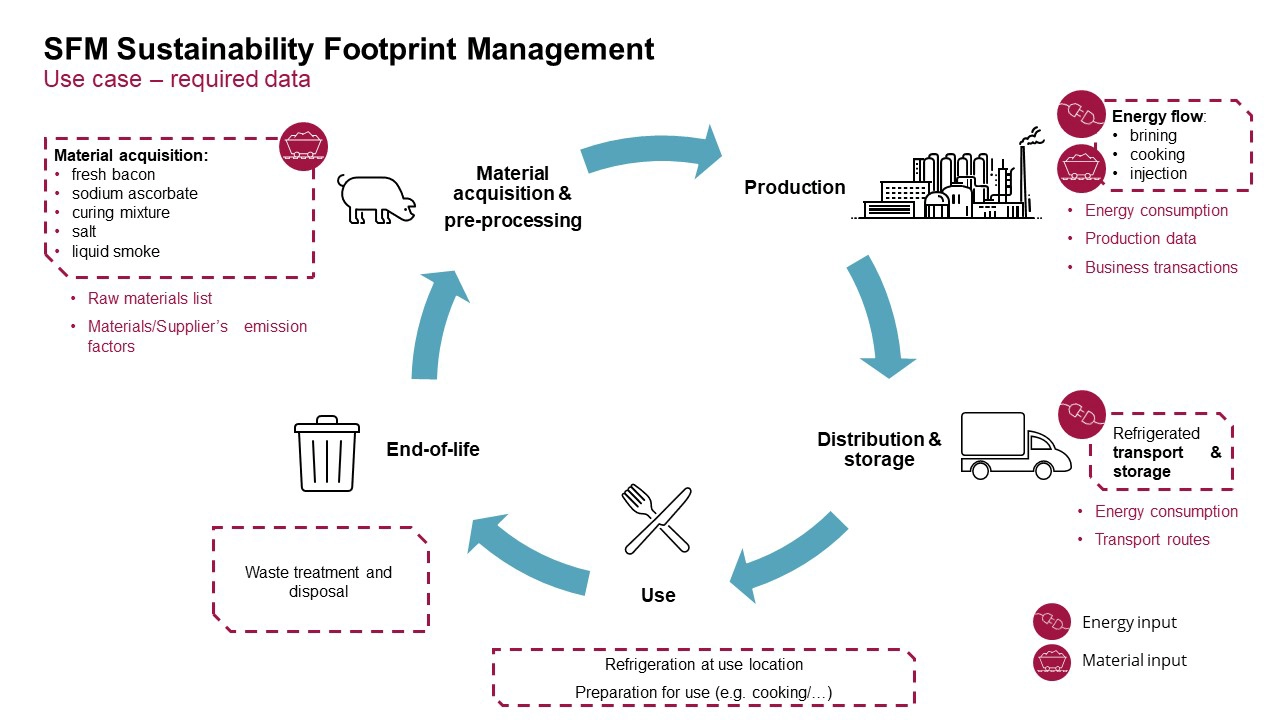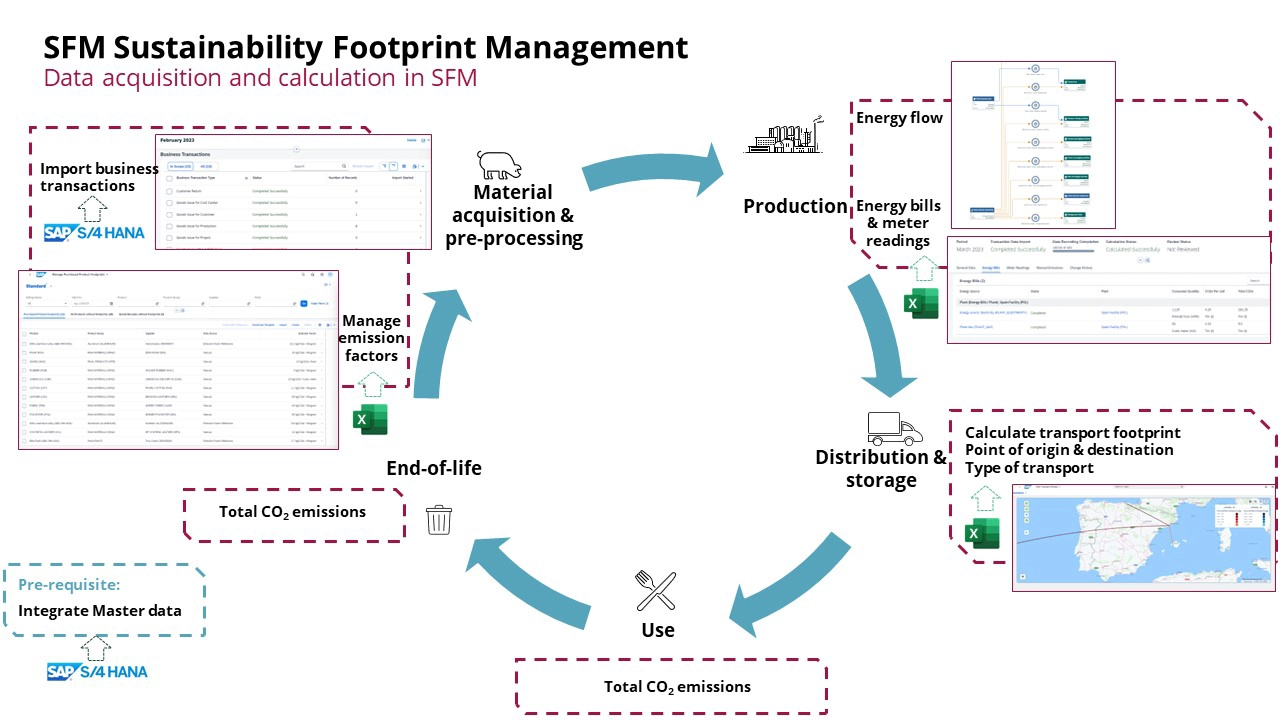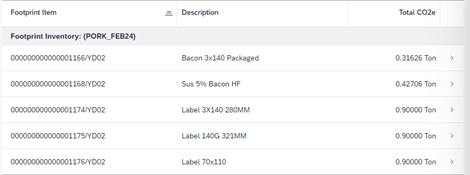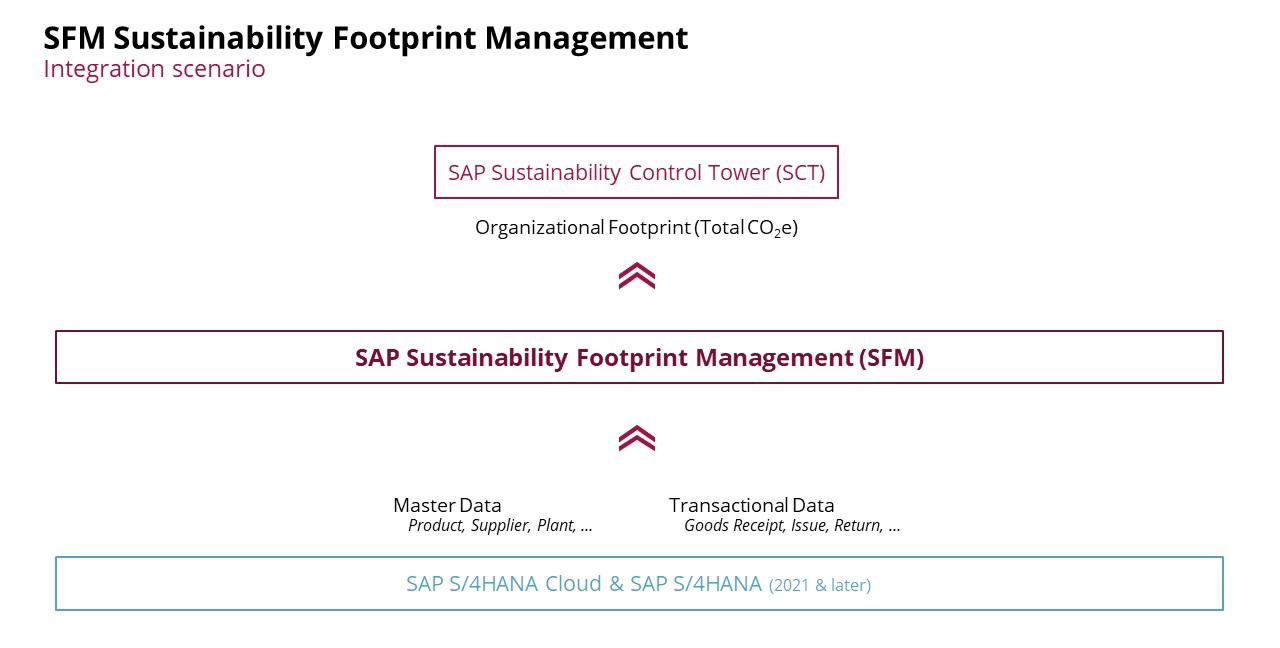Environmental, Social, and Governance (ESG) key performance indicators (KPIs) are measurable values that assess a company's environmental sustainability, social responsibility, and ethical governance performance. Common ESG KPIs include:
- Environmental metrics (e.g., carbon footprint, energy consumption, resource efficiency).
- Social metrics (e.g., employee diversity, safety incidents, labor policies).
- Governance metrics (e.g., board composition, executive compensation, policy transparency).
With SAP Meat and Fish Management software for S/4 HANA, we help food manufacturing companies execute processes efficiently and align with industry best practices and trends. Due to regulatory requirements, stakeholder expectations, and market pressures, these industries increasingly need to track and adhere to ESG guidelines.
As a sustainably aware company, we offer our ESG consultancy expertise to support sustainability for food companies and others. By empowering top-notch SAP products like SAP Sustainability Footprint Management (SFM) and SAP Sustainability Control Tower (SCT) on top of OLTP systems like S/4 HANA, tracking of ESG guidelines like carbon footprint is seamless and real-time, which is demonstrated in following usage examples. The example is built on the actual scenario of a meat processing company, but the solution applies to any manufacturing industry:

For instance, a meat processing company can utilize S/4HANA and SAP Meat and Fish Management as its operational system, storing critical data such as material master records, bills of materials, routings, and transactional records (e.g., material movements and production line execution times). SAP Sustainability Footprint Management (SFM), seamlessly integrated with S/4HANA and/or third-party systems, analyzes this data to calculate and monitor carbon footprints across the value chain.

This includes plant-level overviews or detailed insights per process, supplier, or product—such as calculating the carbon footprint of producing packed bacon:


As the last part of the digital chain, SAP SCT provides a comprehensive overview of ESG performance by consolidating data from various sources into an accessible dashboard. SCT enhances decision-making by offering insights into compliance and progress toward sustainability goals, ensuring alignment with regulatory frameworks and company objectives.

By leveraging SAP SFM and SCT, companies gain the ability to track their sustainability metrics in real time, ensuring compliance with ESG standards and enabling proactive adjustments to reduce emissions, improve resource efficiency, and foster social and governance excellence. These tools empower decision-makers to optimize operations and align with global sustainability commitments like the Paris Agreement. Digital transformation through tools like SAP SFM and SCT is not just a step toward regulatory compliance but a strategic move for businesses aspiring to lead in sustainable innovation.




